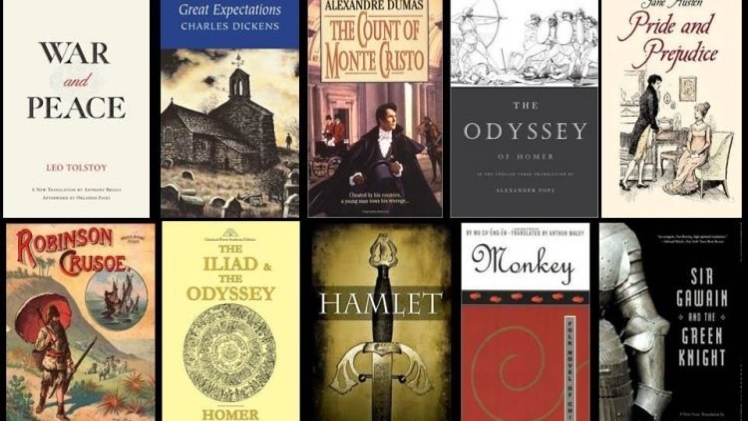The world of literature has been shaped and enriched by countless authors throughout history, each contributing their unique voice to the vast tapestry of storytelling. From the dawn of written language to the modern era, certain novelists have risen above the rest, captivating generations with their words and leaving an indelible mark on the literary landscape.
This article explores the lives and works of the top 10 most popular novelists of all time, whose influence continues to resonate with readers across the globe.
1. William Shakespeare (1564-1616)
Undoubtedly the most iconic playwright and poet in English literature, William Shakespeare’s timeless works have transcended centuries and cultural boundaries. His plays, such as “Romeo and Juliet,” “Hamlet,” and “Macbeth,” explore universal themes that still resonate with modern audiences, making him an unparalleled figure in the world of literature.
2. Jane Austen (1775-1817)
Jane Austen’s novels, including “Pride and Prejudice,” “Sense and Sensibility,” and “Emma,” are celebrated for their keen observations of social manners and relationships in Regency-era England. Her witty prose and engaging characters have cemented her status as one of the most beloved authors in the English-speaking world. If you want to perfect writing in the past tense, look no further than Miss Austen’s work!
3. Leo Tolstoy (1828-1910)
Russian author Leo Tolstoy’s epic novels, most notably “War and Peace” and “Anna Karenina,” delve deep into the human condition, exploring the complexities of love, morality, and society. His masterful storytelling and philosophical insights continue to captivate readers worldwide.
4. Charles Dickens (1812-1870)
Charles Dickens, a prolific English novelist, created some of the most memorable characters and settings in literary history. Works like “Great Expectations,” “A Tale of Two Cities,” and “Oliver Twist” shed light on the social issues of Victorian England while showcasing Dickens’ unparalleled storytelling prowess.
5. Mark Twain (1835-1910)
An American literary giant, Mark Twain’s novels like “The Adventures of Huckleberry Finn” and “The Adventures of Tom Sawyer” offer a window into the American South before and after the Civil War. Twain’s wit, humor, and insightful commentary on society make his works enduring classics.
6. Fyodor Dostoevsky (1821-1881)
Russian novelist Fyodor Dostoevsky is known for his psychological explorations of the human psyche. Works like “Crime and Punishment” and “The Brothers Karamazov” delve into themes of morality, guilt, and the struggle between good and evil, leaving a profound impact on literature and philosophy.
7. George Orwell (1903-1950)
George Orwell’s dystopian novels, particularly “1984” and “Animal Farm,” serve as powerful warnings about the dangers of totalitarianism and the erosion of individual freedom. His thought-provoking narratives and sharp social commentary remain relevant in the modern age.
8. J.K. Rowling (born 1965)
With the creation of the “Harry Potter” series, J.K. Rowling captured the imaginations of readers young and old. Her intricate world-building, relatable characters, and exploration of themes like friendship, courage, and the battle between good and evil have made her a contemporary literary phenomenon.
9. Gabriel García Márquez (1927-2014)
Colombian author Gabriel García Márquez pioneered the magical realism genre, blending fantastical elements with everyday life in works like “One Hundred Years of Solitude” and “Love in the Time of Cholera.” His distinctive storytelling style earned him global recognition and a Nobel Prize in Literature.
10. Agatha Christie (1890-1976)
Dubbed the “Queen of Mystery,” Agatha Christie’s detective novels, including the Hercule Poirot and Miss Marple series, have captivated readers with intricate puzzles and clever plot twists. Her legacy as a master of the mystery genre endures to this day.
These 10 novelists have left an indelible mark on the world of literature, all without any novel editing services to help them out! Through their work, they’ve contributed unique perspectives and storytelling styles that have resonated with readers across generations and cultures.
Read more about 35 days from today
Through their exploration of human nature, societal issues, and the human experience, these authors have elevated the art of storytelling, ensuring their enduring popularity in the ever-evolving landscape of literature.

